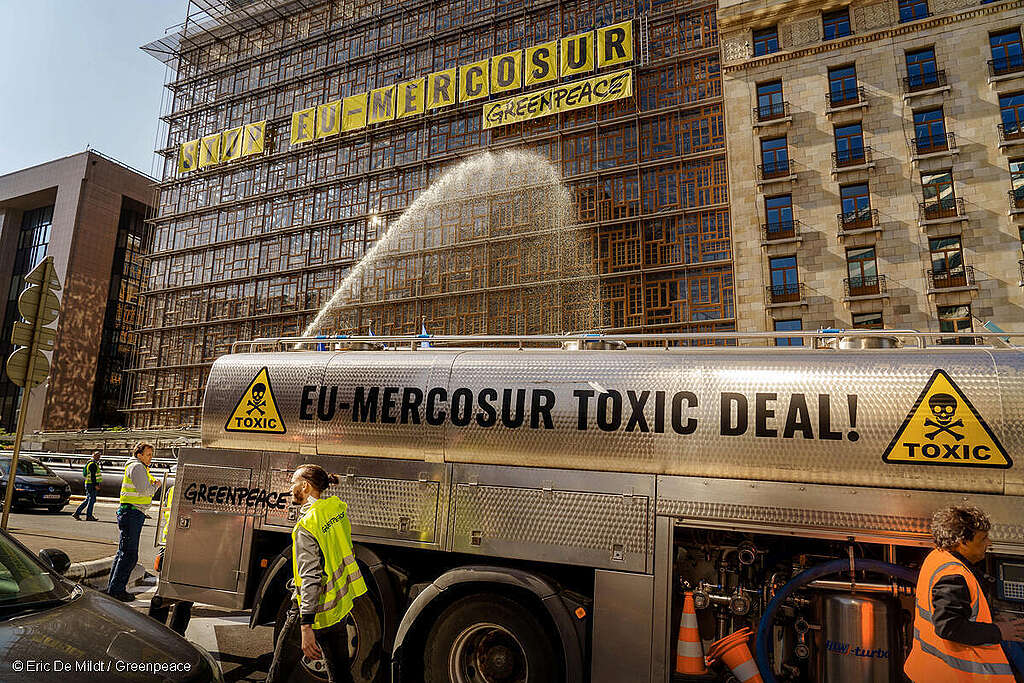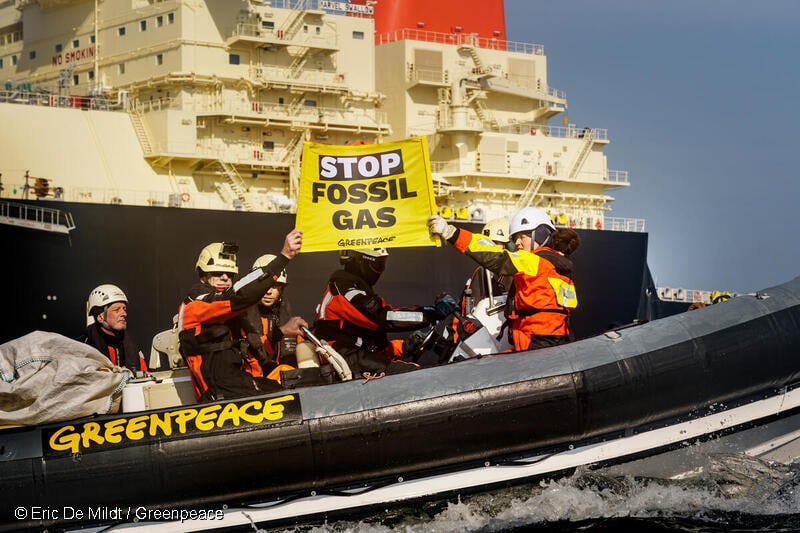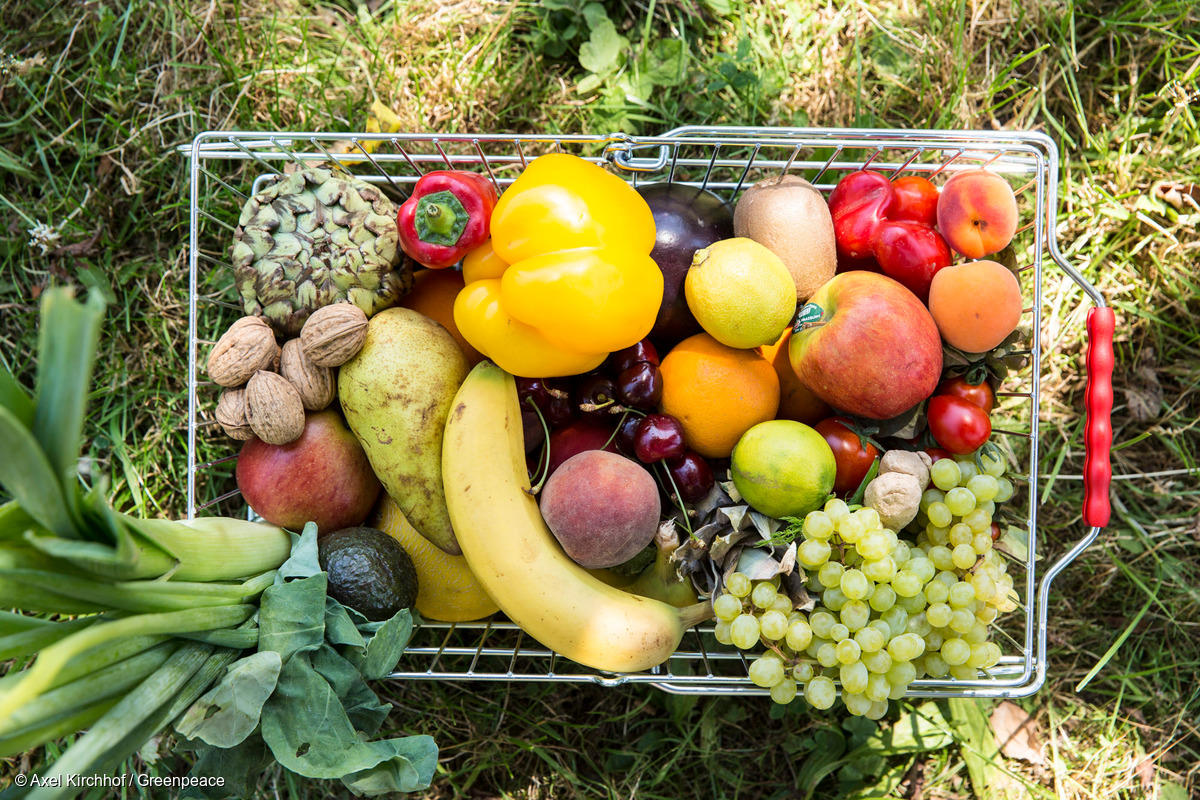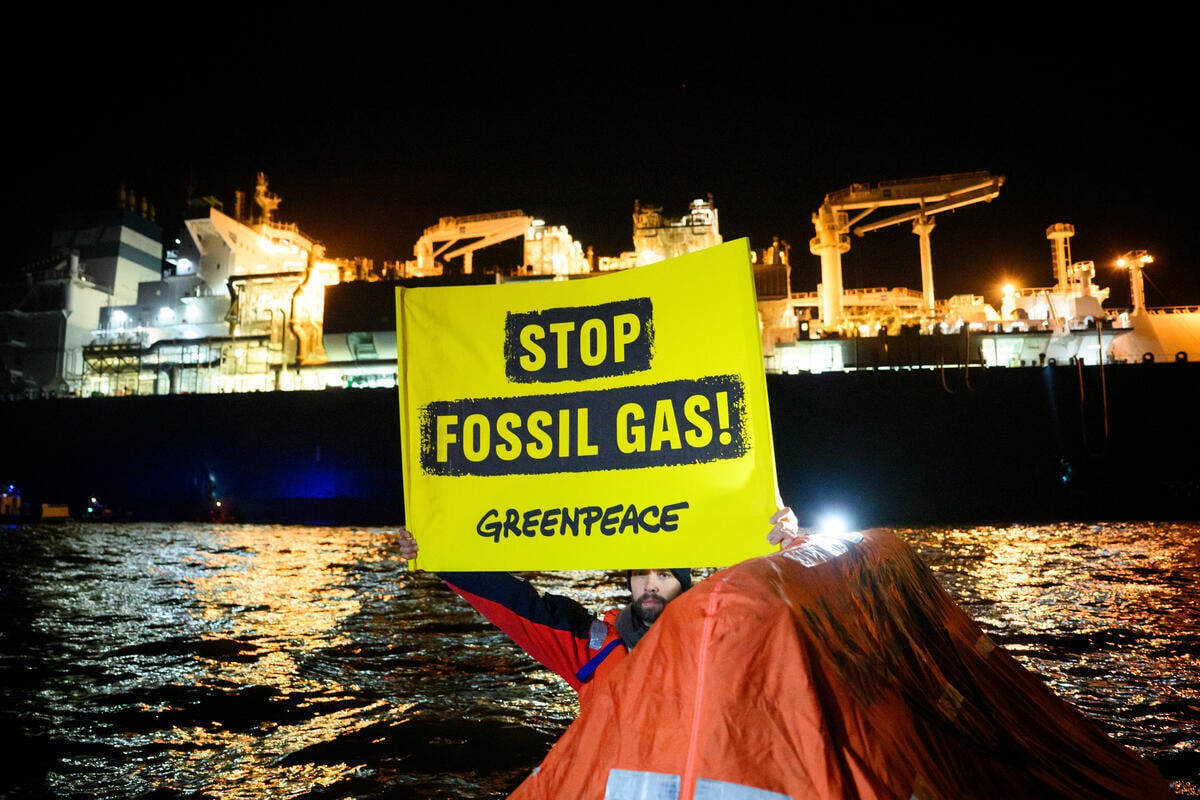
Brussels, 6 December 2024 – European Union and South American leaders have announced the conclusion of negotiations over a toxic free trade agreement during a summit in Montevideo, Uruguay, said Greenpeace.
Greenpeace EU trade campaigner Lis Cunha said: “Twenty five years of secret talks behind closed doors, sidelining public concerns over and over again, have today resulted in a deal that will increase trade in beef, pesticides and plastics, with disastrous impacts on the Amazon, the climate and human rights. It is shameful for EU and Mercosur leaders to push ahead with this toxic agreement. We call on all policy-makers throughout Europe and Mercosur countries to listen to the widespread public opposition and vote against the deal.”
Greenpeace Brazil executive director Carolina Pasquali said: “This is a harmful agreement for the global climate, which will compromise countries’ efforts to face the climate emergency and the just transition. Furthermore, it is regrettable that an agreement with such an economic, social, political and environmental impact on Brazilian society and other Mercosur countries was negotiated behind closed doors, without social participation or transparency.”
“This agreement encourages the import of highly polluting and health-damaging items that will soon be banned from the European market. In practice, it can lead to increased deforestation, as we exchange commodities—often sourced from deforested areas, including the Amazon—for the import of pesticides, automobiles, combustion engines, and plastics. It is also concerning that negotiations surrounding the agreement with Mercosur have been used as bargaining chips to delay and make the European Union’s Anti-Deforestation Law more flexible. This law could serve as a crucial mechanism to regulate trade and ensure that commodity production does not come at the expense of deforestation. Beyond the socio-environmental impacts, the agreement will significantly hinder industrialization and the creation of skilled jobs in Brazil and across Mercosur” added Pasquali.
Over 25 years of secret negotiations, a wide range of global civil society groups have repeatedly voiced steadfast opposition and attempted to inform the public about the catastrophic impacts of a trade deal between the EU and Mercosur, a bloc of countries that includes Argentina, Brazil, Paraguay and Uruguay.
Revelations have included that the deal will: breach EU climate laws, boost trade in plastics and undermine efforts to agree a Global Plastics Treaty, facilitate the entry of a toxic cocktail of banned pesticides into the EU, propel destructive agribusiness and destroy precious ecosystems in South America.
Trade unions, consumers, human rights groups and environmental organisations, economists, indigenous peoples, local municipalities and other civil society organisations have criticised the agreement, not to mention the more than 2 million EU citizens who have signed petitions opposing it.
In addition, farmers in France, Poland and Belgium have taken to the streets in recent days and months to protest against the deal and the impact it may have on the survival of struggling family farms.
Stop EU-Mercosur, an alliance of more than 450 organisations in Europe and South America, has compiled a comprehensive and multilingual list of resources on the many problems with this toxic deal.
Next steps
The deal will need to be ratified in Europe and in Mercosur countries. In the EU, the agreement should in theory be agreed unanimously by all EU governments, and later be scrutinised and voted on by national and some regional parliaments. But the European Commission has come under intense criticism for its plans to split the EU-Mercosur deal up into separate instruments in a way which removes EU national governments’ right to veto and which cuts out national and regional parliaments from having their say on the deal.
By announcing the deal today as a “partnership” agreement rather than the originally envisaged “association” agreement, the Commission appears to confirm that it plans to use this splitting strategy to circumvent democratic scrutiny at national and regional level. The European Parliament and national EU governments may now be the only institutions in Europe which can reject the deal.
Governments in France and Poland, two of the largest and most populous EU countries, have said that they oppose the deal. Austria is bound by a parliamentary resolution to vote against it. Several others, like Ireland, the Netherlands, Belgium and most recently Italy have also expressed significant concerns.
This press release was updated on 6 December at 14:45 CET to include additional comments by Greenpeace Brasil executive director Carolina Pasquali.
Contacts:
Greenpeace EU trade campaigner Lis Cunha: +32 471 013 708, [email protected]
Greenpeace Brasil press coordinator Lais Modelli: +55 11 95311 2112, [email protected]
Greenpeace EU press desk: +32 (0)2 274 1911, [email protected]
This press comment is also available on: www.greenpeace.eu
For breaking news and comment on EU affairs: WhatsApp, Bluesky and X
Greenpeace is an independent global campaigning network that acts to change attitudes and behaviour, to protect and conserve the environment and to promote peace. We do not accept donations from governments, the EU, businesses or political parties. Greenpeace has over three million supporters, and 26 independent national and regional organisations with offices in more than 55 countries.
EU Transparency Register: 9832909575-41



